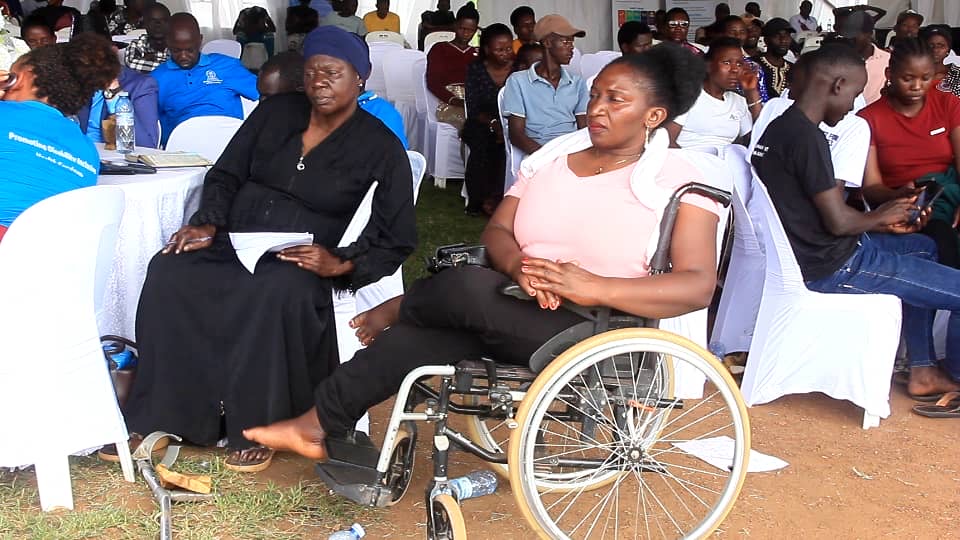Persons living with disabilities (PWDs) have raised serious concerns over what they describe as persistent unethical conduct by some health workers, coupled with the lack of sign language interpreters in public health facilities—factors they say continue to deny them access to essential medical services.
The concerns were aired as the National Union of Disabled Persons of Uganda (NUDIPU) marked 38 years of existence during an event held in Hoima City.
PWDs complained of neglect and discrimination within health centres, where they say they are often treated as secondary patients despite needing urgent and specialised support.
Jane Katusime, one of the attendees, said expectant mothers with disabilities are among the most affected.
“You’ll find a nurse or doctor chasing you away, saying they don’t have time to attend to people who ‘give them a hard time’,” she said.
NUDIPU Chief Executive Officer Esther Kyozira said this year’s celebration, held under the theme “Promoting Disability-Inclusive Healthcare Services,” focused on advocating for equal, timely and affordable healthcare for persons with disabilities.
She noted that beyond health, NUDIPU also pushes for inclusive vocational training through the Ministry of Education, political representation at national and local levels, and involvement of PWDs in key government programmes like the Parish Development Model (PDM).
Kyozira said the use of abusive language and poor ethics among some health workers remains a major barrier, calling for affirmative action at service points to ensure PWDs are attended to promptly.
She also highlighted the shortage of specialists in fields such as psychiatry and ophthalmology, saying the gap exposes many PWDs to worsened conditions, including preventable cancers, due to late diagnosis and poor follow-up.
“We need adjustable maternal beds and disability-friendly equipment, especially in lower health facilities,” she added.
Yonah Yoswa from the National Council for Persons with Disabilities pointed out that many deaf patients struggle to access care as most health facilities lack sign language interpreters.
“We have seen both the rich and poor PWDs suffer because they cannot communicate with doctors,” he said.
He also cited inadequate sexual and reproductive health services and the absence of health insurance schemes tailored for PWDs. Yoswa urged NUDIPU to continue pushing for stronger collaboration with government ministries.
Patrick Menya from the Ministry of Gender, Labour and Social Development said the government has made progress through the 2020 National Disability Act, special grants for PWDs and the allocation of 10 percent of PDM funds to benefit persons with disabilities.
He noted that these interventions have helped 83 percent of PWDs improve their livelihoods, including securing education for their children and better housing.
Hoima Resident City Commissioner (RCC) Badru Mugabi called for standardised approaches to strengthening disability rights. He revealed that only 0.9 percent of the PDM funds meant for PWDs have been disbursed, attributing the shortfall to a lack of committed beneficiaries.
The chief guest, Godfrey Mugisha, commended NUDIPU for aligning with the national goal of improving health services and acknowledged widespread complaints of negative communication from service providers. He assured the public that the government is developing measures to curb such behaviour.
Mugisha urged the public to report any misconduct by health workers to the relevant authorities for immediate action. He added that government continues to work with development partners to expand community-based rehabilitation programmes.


